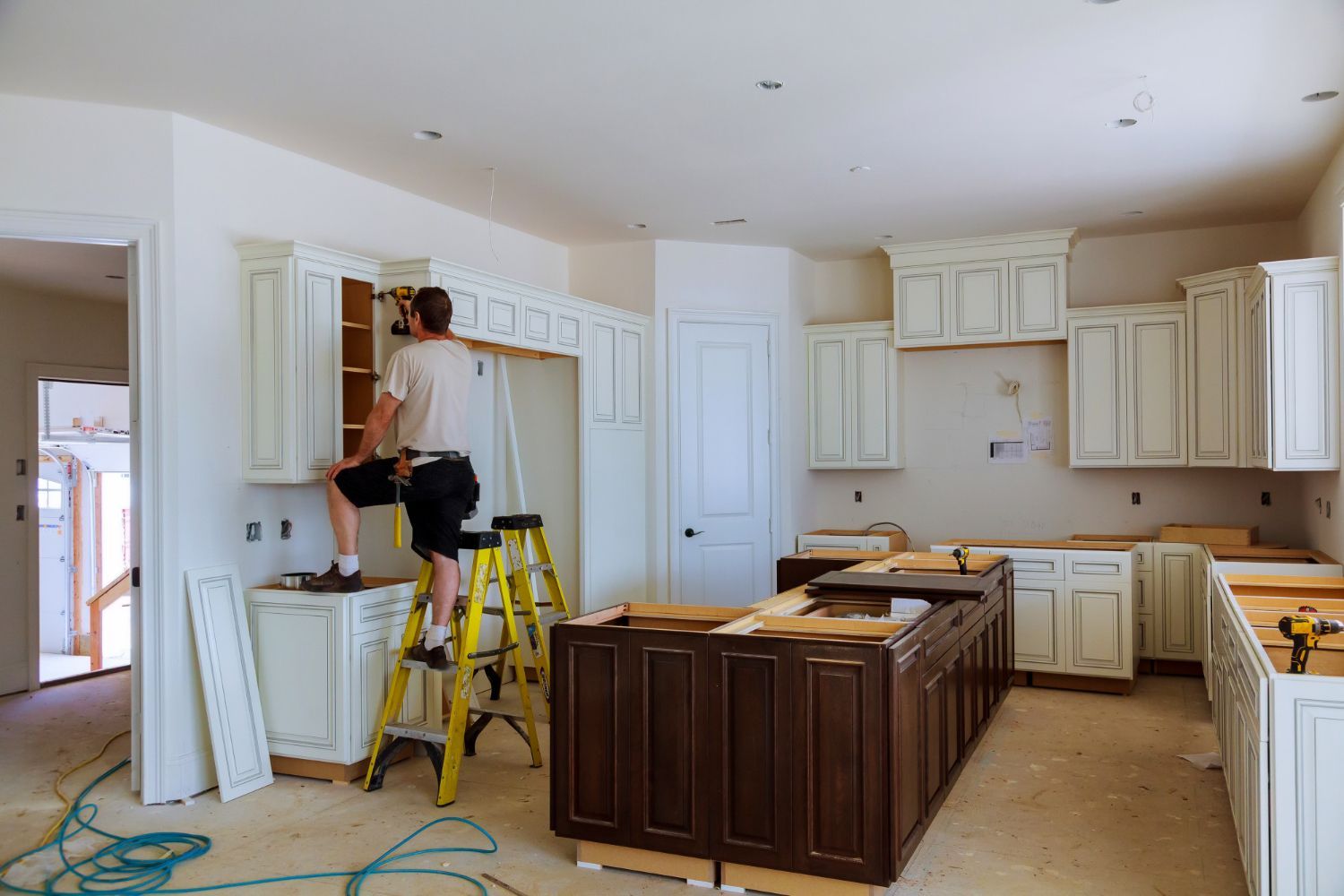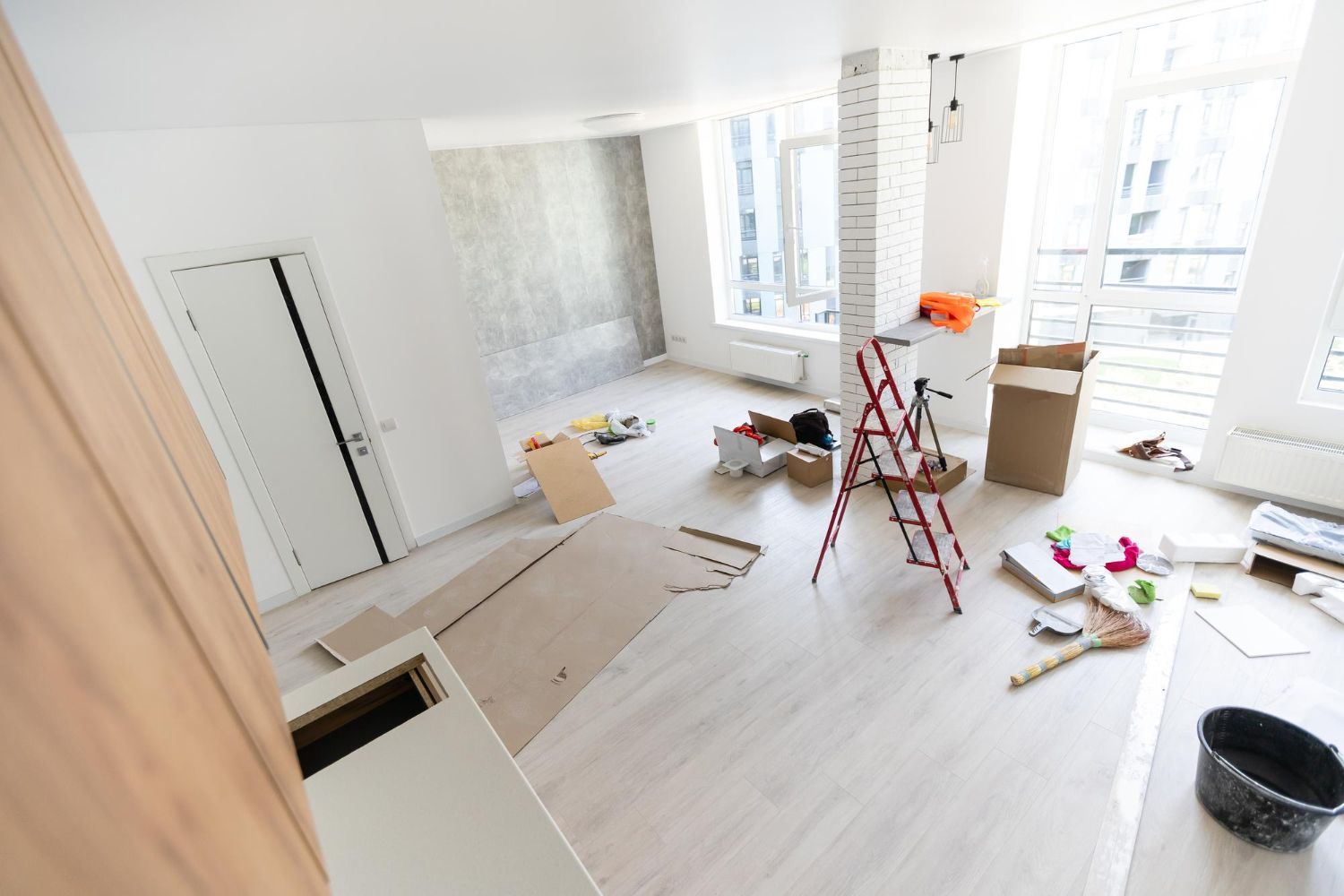Blog

Any property guru worth their salt will tell you that a dream property investment has nothing to do with a prestigious address or sleek amenities. The ultimate goal, is to find that perfect “high yield” property that will give you maximum returns for as little input as possible. Yield refers to the amount of cash a property produces as a percentage of its value and is calculated by the rental income you are receiving compared to the purchase price. There’s a lot more that goes into the calculations, which I’m happy to run you through, but to give you an idea on what to look for, I’ve put together some simple tips. 1. Do your research. There are plenty of stats out there that will give you the median rental yield for each suburb. This is a great place to start! 2. Look for dual income properties such as a house with a granny flat. You can potentially have two streams of rent coming in, meaning the chance for a higher rental yield significantly increases. 3. Have you thought about looking rurally? Country towns offer some great properties at a low price and because the cost of living is low, the rental yields tend to be higher. 4. Always think forward. Be on the lookout for up-and-coming areas and ask yourself if they’ll still be flourishing in five years time. At the end of the day, you need to be realistic. Just because a property has a high yield doesn’t mean it’s going to be a great investment. As a mortgage broker, I can talk you through your options for investment loans so you can see what your monthly outgoings might look like. Please call our team on (03)8657 8664 or email reception@futurefinancegroup.com.au to arrange an appointment.

The continuing boom in property prices has tempted many homeowners to invest in renovations to maximise the value and then put their home straight on to the market. There’s no doubt you stand a better chance of enjoying a great return on your investment if you modernise your home. Properties that enjoy a mix of the traditional and the contemporary are in big demand among today’s buyers and nothing ticks the boxes more than a brand new kitchen or bathroom. Two increasingly popular features at the moment are a dedicated home office and a design that connects the indoors with a garden or entertaining area. But renovation projects of this size can become expensive. If your budget doesn’t allow for large-scale upgrades, there are plenty of ways to enhance the value of your home at little cost. Here’s a seven-point guide to upgrade your home. 1. Break out the brushes It’s amazing how a fresh coat of paint will improve a property. Don’t focus only on the walls but attend to the skirting boards, ceilings and architraves. Select neutral colours as these make rooms feel bigger. 2. Go green Small-scale improvements to your gardens work wonders. Focus on the front yard as this creates an all-important first impression. 3. That’s entertainment If your property lacks an area to entertain, this is a great low-cost project to enhance your property’s desirability. Consider adding a deck or a barbeque area. 4. Floor ’em A mixture of different floor types can make a home feel bitsy while a home with consistent flooring creates a great sense of flow. Replacing the floor can be a painful project but you’ll be amazed how much bigger your home feels. 5. Say it with storage You can never have too much storage. A bedroom without built-in robes is just asking for clothes on the floor. Think about storage in bedrooms, bathrooms, kitchen and laundry and looks at ways to create clever storage solutions in nooks and under the stairs. 6. Kitchen upgrades If yours is a little tired, don’t worry – you don’t have to rip it out and spend big dollars. Consider replacing only the doors, drawers and handles. You’ll achieve a transformation at the lowest possible cost and it will feel like new. 7. Unbeatable bathroom Like the kitchen, this can be an expensive renovation. You can avoid replacing tiles by using a professional company to spray-paint them. This treatment can also be applied to sinks, baths and showers. New tapware and shower screens complete the refresh for a fraction of the cost of ripping and replacing. Please call our team on (03)8657 8664 or email reception@futurefinancegroup.com.au to arrange an appointment. *This article is provided for general information only and does not take into account the specific needs, objectives or circumstances of the reader. Before acting on any information, you should consider whether it is appropriate for your personal circumstances, carry out your own research and seek professional advice.

There are many tips for buying a property, but there’s one essential element that no one can avoid - getting your finances in great shape before you start. Knowing what you can afford is a critical element of finding your first home or the next one that takes you higher up the property ladder. The most successful buyers begin their search with their finances in order and a pre-approval letter from their bank or lender. They know their budget and tailor their efforts accordingly. There’s no greater waste of time than visiting properties that are beyond your price range. Using a mortgage broker can help you shortcut the hours of research through various banking products and good brokers have detailed market knowledge and can offer an array of products. We can suggest the loans most suitable to your circumstances and assist you with paperwork, and review your credit history. We can also help you understand any grants or tax exemptions from state and federal governments that you may be eligible for. Below are a few tips for securing the finance that will help you find your dream home. 1. Clarify your finances If you’re a homeowner, you’ll need to obtain a valuation on your current property and provide proof of current earnings. A first-time buyer will ideally have 10% of the purchase price as a deposit to get the best interest rate and conditions for their first loan but the more the better. Money for legal fees, property inspections and taxes need to be set aside, too. Make sure your tax returns are up to date to prove your earnings. It will make life easier. 2. Low barrier to entry You can obtain a conventional loan with as little as 5% of its total as your deposit. Some government-backed loans do not require a deposit. 3. It pays to save The more you save, the less you borrow. And that means lower your monthly repayments for you over the term of the loan. 4. Go for a grant First-home buyers should research the current grants from various levels of government that are designed to encourage them into the market. 5. Credit crunch You’ll need a good credit history to be attractive to lenders. Check yours out by using companies such as Experian and Equifax. If your track record is not the best, we can discuss ways to address this. If errors appear in your credit history, dispute them immediately. 6. Find the right loan You can save thousands of dollars by choosing the right mortgage product for your situation. It pays to shop around and make a note of not just the interest rate but the fees that come with it and other services that may be offered. As your mortgage broker, we can guide you through this process. 7. Be pre-approved A written undertaking from your lender will help you focus on what you can afford, as well as signal to a prospective seller and their agent that you’re not kicking tyres. Watch out for lenders who will only “pre-qualify” you, as this represents only an estimate of what you can afford and does not offer any guarantees of intention to lend. Please call our team on (03)8657 8664 or email reception@futurefinancegroup.com.au to arrange an appointment.

Owning an investment property can offer attractive tax advantages in exchange for contributing to the nation’s supply of rental accommodation. In order to claim these advantages, it’s extremely important to keep your receipts. Being organised always helps maximise your tax position. Using a property manager can make this easier as you’ll receive an annual income and expenditure report. This improves the accuracy of your return and can help result in a faster refund. Remember that deductions can only be claimed for when tenants occupy the property or when it’s genuinely up for rent. If you’ve had renters for only six months of the fiscal year, you might be entitled to half of what you’d typically expect. Here are 10 general tax advantages from an investment property that you may be able to claim. But always work with your accountant who will tailor his or her advice to you specifically. That way you’ll not miss out on a claim or breach a rule that risks an audit. 1. Rental advertising costs – If you’ve had to find a new tenant, your marketing expenses are a legitimate claim. 2. Interest on your loan – Together with bank fees, the interest that you’ve paid on your mortgage (not the reduction of the principal) can be claimed. 3. Council rates – While these are an annual cost, they can be claimed only for the period during which a tenant is in residence. 4. Insurance – You’ll likely have a landlord insurance policy and also building insurance. These are expenses that in most cases can be claimed 5. Land tax – Consult your accountant before making any claim, or find the latest rules on the ATO’s website. Look for the “residential rental properties” area but it is worth discussing this expense with your accountant. 6. Strata fees – Like rates, these can be claimed for the period you have a tenant in the property. 7. Depreciation – This can be a big-ticket item. You should have had a quantity surveyor create a depreciation schedule. Claims can cover contents such as appliances, carpets and blinds and, if within the rules, renovations and the building structure. Speak to your accountant before organising a depreciation schedule. 8. Maintenance – Claims are accepted if they relate to general wear and tear but not if they are replacing or adding to the value of the asset. Don’t confuse maintenance with depreciation. If a stove breaks and you replace it, that’s not maintenance; the new stove has to be depreciated. 9. Garden – This is another confusing area. You can claim costs of upkeep, such as lawn-mowing. Any expenses that add value to the property, such as a retaining wall, must be depreciated. 10. Professional services – Your property management fees, costs associated with accounting, book-keeping, and any legal expenses can all be claimed. Please call our team on (03)8657 8664 or email reception@futurefinancegroup.com.au to arrange an appointment. *This article is provided for general information only and does not take into account the specific needs, objectives or circumstances of the reader. Before acting on any information, you should consider whether it is appropriate for your personal circumstances, carry out your own research and seek professional advice.

Maintaining your home requires a mix of love, diligence and ongoing spending. But it’s a small price to pay to keep your home comfortable and stop small issues growing into big problems. Here's a quick guide to staying on top of essential maintenance. 1. Set aside time It's a good idea to schedule a certain amount of time per week or month for property maintenance, so you never fall behind. 2. Call for help Don't be afraid to call in gardeners and handymen to do these chores, especially if they’re not your thing or you’re time-poor. It can help to set an annual budget for such work. 3. Fix water leaks Thirty drips a minute can add up to 1,000 litres per year. If you don’t jump on top of leaking taps or toilets early, you’ll have money pouring down the drain. 4. Do pest control Have you done a pest inspection since you bought the home? An annual pest inspection could help you find any termites before they do serious damage. 5. Change the lights Switching from incandescent light bulbs to modern LEDs and halogens will save you energy and – eventually – money. Some councils and energy providers offer switchover programs. 6. Get insulation Allowing heat to escape through a poorly insulated roof can be an expensive problem. You can fix it by installing insulation batts in the roof cavity – and inspecting them every few years to make sure they haven’t degraded or slipped out of place. 7. Clean your aircon filter A dirty air-conditioning filter will require more power to operate, and therefore use more energy. It can pay to give your air-conditioning an annual service. 8. Switch your fans If you climb a ladder and look at the stem of your fans, you'll likely find summer and winter settings. The winter one will reverse the rotation and push hot air back towards you, maximising your warmth. If you need help managing your mortgage, feel free to call me on (03)8657 8664 .

Property renovation is not only a great way to improve the value of your biggest financial asset but a sensible strategy to enhance your lifestyle without the expense of buying a new home. State government stamp duty fees are significant in most states. If you love your neighbourhood, it can make little sense to go through the upheaval of moving to relocate just down the road. For many city properties, the amount paid in stamp duty could cover the cost of a new kitchen, bathroom or a granny flat. You still have to finance your renovation, though. A popular approach is to use the equity in your home – that is, the difference between a lender’s valuation of your property and the amount you owe on it. It means you need to apply for a Home Equity Loan, or line of credit loan. If you want to go beyond the 80% Loan to Value Ratio – known as LVR – your lender may require Lender’s Mortgage Insurance. This protects the bank against you defaulting. Not every loan arrangement will allow you this flexibility, so it’s best to talk to your mortgage broker about the best deals based on your specific circumstances. However, here are a seven pointers to get you thinking: 1. Change horses The home loan market is complex and competitive. Few owners who take a 20- or 30-year loan stay with the same lender over that period so it’s perfectly normal to refinance and change lenders but remain in the same property. 2. It’s not personal Refinancing your home is cheaper and more practical than sourcing a personal loan. 3. Construction loan These are available for major works that will result in your property being more valuable. An example might be adding an extra storey. In this arrangement, you pay for the funds you use, not the amount you borrow. 4. Renovation budget Source quotes so you know how much you’ll need to do the renovations you envision. Add 20% of the total to cover unforeseen problems and delays. (Do you know anyone whose renovation has finished on time and on budget?!) 5. Fees dilemma If you stick with the same lender, it can be possible to negotiate away refinancing fees. Switching lenders for a better interest rate may involve fees, so talk to your broker to work out the best deal for you. 6. Apply here Refinancing requires the agreement of your lender. Your application might take a few weeks and you’ll need your paperwork lined up so give yourself time to get it organised. 7. Quick-draw Another strategy is to draw down on any additional money you’ve paid on the principal of your loan if your current mortgage structure permits. Talk to your broker to understand if this is a better option than refinancing. Please call our team on (03)8657 8664 or email reception@futurefinancegroup.com.au to arrange an appointment. *This article is provided for general information only and does not take into account the specific needs, objectives or circumstances of the reader. Before acting on any information, you should consider whether it is appropriate for your personal circumstances, carry out your own research and seek professional advice.

Assessing the benefits of an extensive home renovation against selling your property is always a worthwhile exercise. Selling your home is rarely an easy decision. It will often hold family memories, and that makes it tough to leave. It’s also likely to be your most significant financial asset, and you want to be confident you can maximise its value. The process of selling isn’t cheap with commissions, legal fees and taxes. But the alternatives are to tolerate your home in its current condition or to talk to an architect or builder about giving your home a makeover. That’s not cheap, either. Costs can run into hundreds of thousands of dollars, and there’s never a guarantee the work will finish on time and budget. If you think selling is stressful, you should try a large-scale renovation! Regardless of which way you jump, it’s likely you’re going to need finance - whether that’s refinancing your current loan for a renovation or a new loan for a new property - so it’s worth talking to your mortgage broker to understand your options. Here are a few tips to help you think it through. 1. Structural issues Nothing dates a bathroom like colour. You can tell if it was built in the 70s and 80s merely by the colour scheme. Most bathrooms today are based on white, rather than old school creams or browns. If your bathroom can remember when David Cassidy was making hits, then the time to act is overdue as aging bathrooms usually also have waterproofing issues. 2. Money in the bank You can afford to decide whether you want to pour your hard-earned cash into your existing home, or climb the property ladder and find a superior property. Or if you’ve paid down a lot of your current home loan, you may be able to redraw to fund a renovation. 3. You intend to stick around If your home is well located, you may opt to stay and maximise the potential rather than move. However, if you favour a renovation, be aware that upgrades offer the best payback when you sell within a year or so of the work being completed. Your new kitchen doesn’t stay new forever although it is likely to give you a lifestyle benefit for at least a decade. 4. Big squeeze If your current home is getting too small, you’ve got the option of building an extension, but that means you’ll have to battle the planning process as well as the stress of selecting an architect and builders and perhaps paying rent while the work is being done. If the rebuild is so big that you need to move out anyway, a new home might be a more straightforward option here. 5. Living in the 70s Many owners who take the upgrade path want to modernise their homes. They’re fed up with the rabbit-warren design of small, disconnected rooms and yearn for open-plan living, plus a new kitchen and bathroom. Making such fundamental changes are expensive, and it is worth checking out the prices of more modern homes nearby before going ahead with a renovation. That will help you understand the value that you’re adding. 6. Dead space Poor design can result in some rooms being ignored, either because of their size or their position relative to the main living areas. Real estate is not cheap, so this is very wasteful. If fixing the problem is difficult, finding a new, better-designed property will pay off for you financially in the medium to long-term while also helping you take the next step on the property ladder. Give us a call on (03)8657 8664 to have a chat about the best way to fund your home improvements.

Owning an investment property is a little like running a business. It provides a great source of income and builds personal wealth but inevitably comes with a series of costs that hit your bottom line. The excellent news for property investors is that many of these expenses are tax-deductible. Tax advantages are not just available on new properties. While an older building may have limits on what you can claim, you do not have to buy a new house or apartment to qualify for tax benefits. There are two components of a tax claim for a rental property. These are: Capital Works Allowance covers the structure, such as walls and roof tiles; and Plant & Equipment covers the so-called removable assets such as carpets, stoves, and hot water system. You should always obtain professional accounting and tax advice to understand exactly what can and cannot be claimed according to your own specific circumstances as the Australian Tax Office changes the rules regularly. For example, only investors of new property can make claims under plant and equipment assets. However, exclusions exist for those properties that have been renovated. Those who own older properties can continue to depreciate items that fall under the capital works component, so long as it was built after September 15, 1987. And you may benefit from depreciation even if a previous owner undertook improvements. So, working out what you can claim legitimately requires the eagle eye of a professional. In general, you will find the following items are tax-deductible: Costs associated with a property manager, which are usually 3-8% of rental income Accounting and professional financial advice Advertising if required to find new tenants, plus associated re-letting costs Strata levies Rates and land tax Insurances Loan interest and ongoing loan fees Also, work with your accountant or financial adviser to build a tax depreciation schedule for your property. This document will list all the items in your property that qualify for depreciation. It should only need to be completed once, and it can then be submitted to the ATO each year to ensure you obtain the maximum possible tax benefits from your rental property.

Investing in property isn’t rocket science but there are a few rules savvy investors should follow for success. Here are some things we’ll cover in the next couple of weeks to get you started. Should I invest? Investing isn’t right for every one.The first thing you need to do is make sure you’re in the right financial position to take the risk. How do I build a strategy? Before you start your journey you need to do plenty of research and build a strategy around your specific budget and financial needs. How do I choose the right loan? Once you get your finances in order, start shopping around for a great loan. Make sure you get pre-approval from your lender before you start looking for your investment property. How will I manage my investment? It’s important to remember that an investment property is a long term commitment and you need to know how you are going to manage it over the life of your loan. With the right advice and loan, property investment can be the most satisfying and profitable decision you make. If you have any questions or want to discuss whether property investment is right for you, contact us on (03)8657 8664 or email us at reception@futurefinancegroup.com.au
